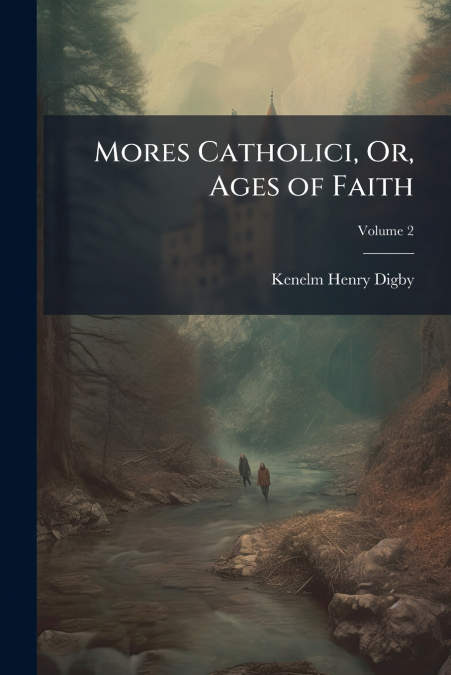
Kenelm Henry Digby
'Mores Catholici, Or, Ages of Faith, Volume 2' by Kenelm Henry Digby, originally published in 1846, offers a detailed and impassioned exploration of medieval European life through the lens of Catholic faith. Digby delves into the customs, traditions, and spiritual underpinnings of the era, presenting a vision of a society deeply influenced by Christian ideals. The work examines various aspects of medieval society, from its art and literature to its social structures and daily life, all interpreted within the context of Catholic teachings and values. Digby’s writing provides valuable insights into the historical and cultural significance of Catholicism in shaping European civilization. This volume will appeal to readers interested in religious history, medieval studies, and the intersection of faith and culture. It remains a significant contribution to the understanding of a pivotal era in Western history, offering a unique perspective on the enduring influence of Catholic thought and practice.This work has been selected by scholars as being culturally important, and is part of the knowledge base of civilization as we know it. This work was reproduced from the original artifact, and remains as true to the original work as possible. Therefore, you will see the original copyright references, library stamps (as most of these works have been housed in our most important libraries around the world), and other notations in the work.This work is in the public domain in the United States of America, and possibly other nations. Within the United States, you may freely copy and distribute this work, as no entity (individual or corporate) has a copyright on the body of the work.As a reproduction of a historical artifact, this work may contain missing or blurred pages, poor pictures, errant marks, etc. Scholars believe, and we concur, that this work is important enough to be preserved, reproduced, and made generally available to the public. We appreciate your support of the preservation process, and thank you for being an important part of keeping this knowledge alive and relevant.